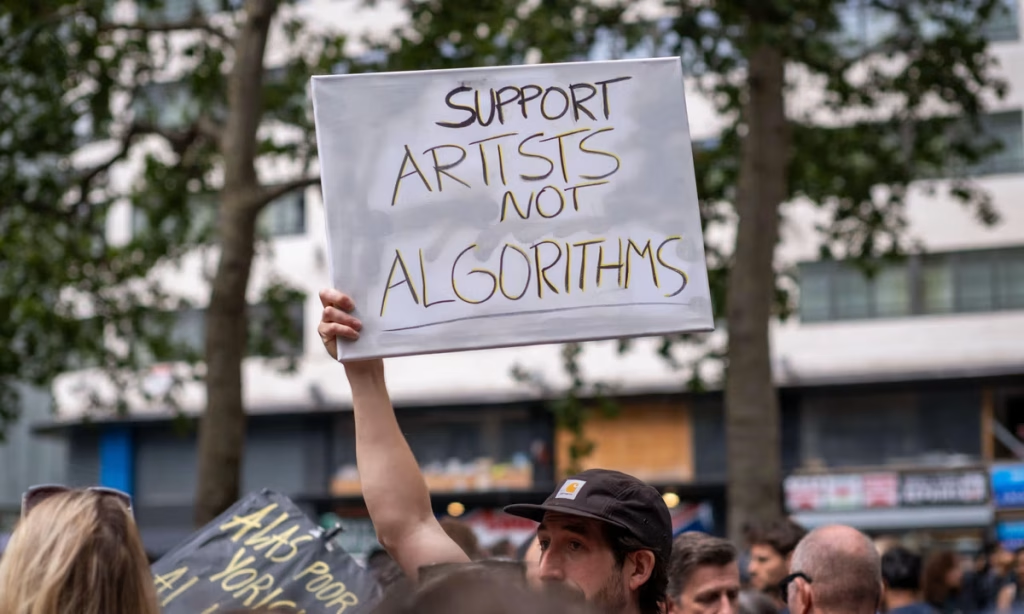Organisations representing more than 100,000 artists, illustrators and photographers have published a joint statement calling for an end to the unauthorised scraping of copyrighted visual works by artificial intelligence (AI) firms to train their computer models, which they say are being used to undercut human creators.
The group is calling for retrospective settlements for previous unauthorised use, for transparent disclosure of training datasets and for fair licensing agreements to ensure creators are properly credited and compensated for their contributions to AI development.
Derek Brazell, the publishing and membership manager at the Association of Illustrators tells The Art Newspaper: “Evidence of unlicensed scraping is clear…But companies have not been transparent about which copyrighted works they used for training. This is why we’re calling for transparency. So that creators are respected and can then be credited and paid appropriately for the use of their works.”
Brazell adds that websites such has Have I Been Trained?, which allows artists to search AI databases for links to their work and flag them for removal, have identified “billions” of images used without permission, including his own illustrations.
Other groups backing the statement are the Design and Artists Copyright Society, the Association of Photographers and the Picture Industry Collecting Society for Effective Licensing (PICSEL). The coalition says that artists’ raw materials are being used to directly harm their livelihoods, and that so far AI companies have failed to engage them on this issue.
Isabelle Doran, the chief executive of the Association of Photographers, says: “These services evidently now compete directly with photographers’ and other visual artists’ livelihoods—our survey showed 58% of photographers affected by generative AI—and yet the companies responsible for the development and release of these programs continue to remain silent.
“Our joint statement with the AOI, DACS and PICSEL simply asks for respect, fairness and transparency in these matters, which any person or company with integrity would be willing to engage with us and uphold.”
Paul Seheult, the chief executive of PICSEL, says: “We’d like to see more collaboration, more working together but at this current time, we’ve not been able to get around a table to discuss either the issues or the opportunities for everyone, but we’re ready to have that conversation.”
Without action, the coalition warns that the UK Government may need to step in. They are calling on people to write to their MP to oppose the weakening of copyright protections for the benefit of AI firms, and to ensure copyright laws are effective and enforceable.
